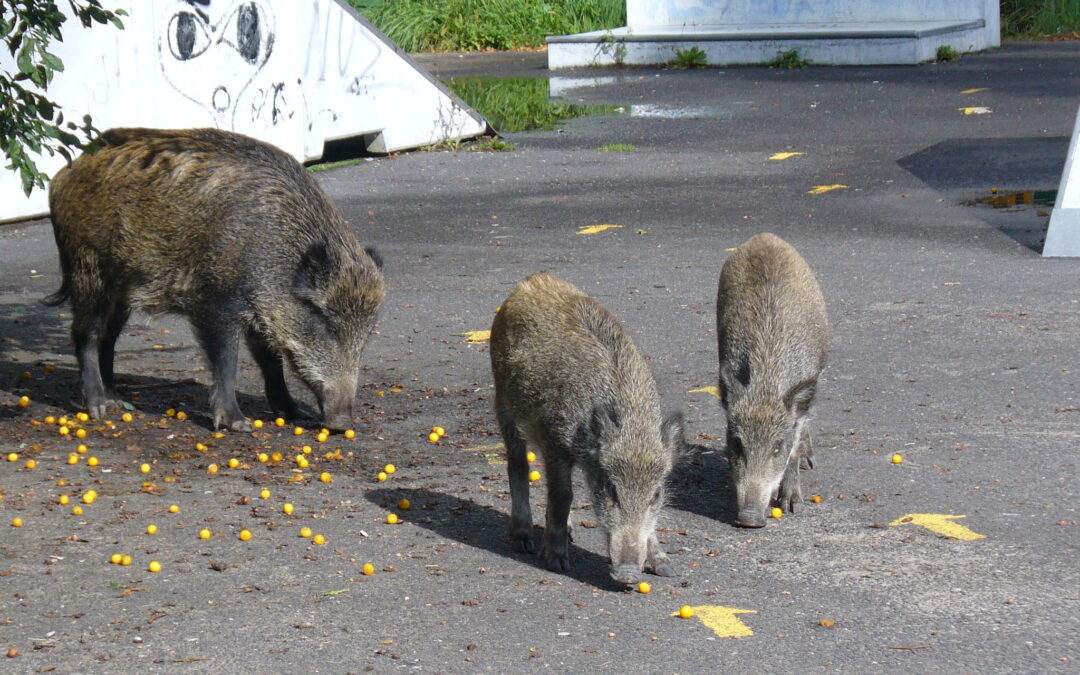Authorities in Warsaw have appealed to residents to stop feeding wild boars they encounter, amid a significant increase in sightings of the animals in housing estates, parks and playgrounds within the city.
Since the beginning of this year, the municipal authorities have received almost 1,100 reports of wild boar sightings. That compared to just under 2,500 in the whole of last year, which itself was up from only 500 in 2021.
Dziki protestują w Warszawie codziennie! Tu blokują ścieżki rowerowe..#czaskowski do roboty!! 😁😁😁 pic.twitter.com/F3SjFsWbah
— Paweł (@nowyobserwator) April 21, 2023
“The city appeals not to feed wild boars and not to facilitate their access to food,” city hall announced on Friday. “Scattering food scraps or failing to secure rubbish bins properly is an additional incentive for them to visit built-up areas.”
The city also urges residents to refrain from approaching the animals or taking photos of them in case they are provoked.
The most recent report of boars in Warsaw came on Thursday, when groundskeepers at Krasiński Park heard loud grunting noises from behind trees. Officers from the city’s “Ecopatrol”, which is part of the municipal police force, arrived at the park and discovered two male boars, digging at the lawn.
Nikt nie lubi, kiedy odrywa się go od posiłku. Niestety, w tym przypadku trzeba było przerwać śniadaniową sielankę i wysłać🐗🐗na wycieczkę do lasu pod Warszawą… ➡️https://t.co/U5BejvlAJ2 pic.twitter.com/IPPjWGrhWZ
— Straż Miejska m.st. Warszawy (@SMWarszawa) April 21, 2023
The pair were incapacitated with a tranquillizer injection then transported to and released into a forest outside Warsaw. In that case, like with the majority of boar sightings in urban areas, the animals had wandered into the city looking for food.
“They were focused on finding something to eat and we posed no threat to them. However, it is important to remember that although they are used to the presence of humans, they are wild animals that can be dangerous,” Ecopatrol inspector Sebastian Ryczkiewicz told state broadcaster TVP3 Warsaw.
A policeman was required to intervene after a wild boar entered a backyard where children were playing and ate their pierogi.
The police reassure that the offender is well known to them and is not aggressive, having become used to being fed by humans https://t.co/yShFzj84fV
— Notes from Poland 🇵🇱 (@notesfrompoland) June 5, 2020
Measures to encourage wild boars to stay away from the capital city have long been taken by foresters. These include enriching the feeding base of wild boars in the forests and maintaining muddy bathing places for them, known in Polish as “babrzyska”.
A number of other cities around Poland – including Gdańsk, Poznań and Lublin – have also seen an increase in the presence of wild boars in recent years.
In 2019, the then agriculture minister Jan Krzysztof Ardanowski admitted that the true number of wild boars is unclear, with estimates varying between 200,000 and 1 million.
Olsztyn, Centrum 😳🐗 pic.twitter.com/dxL5XmMO10
— Konrad Bukowiecki (@k_bukowiecki) May 15, 2020
Main image credit: BK and EP/Flickr (CC BY 2.0)

Anna Hackett is an assistant editor at Notes from Poland. She is a recent graduate of European Studies from Trinity College Dublin and has had previous journalistic experience with the Irish Independent News & Media group.




















